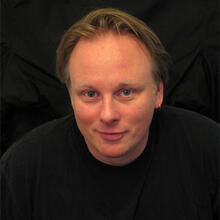C.S. Lewis described it as a “stab of Joy.” A rabbi friend calls it the “burning bush” and a priest colleague speaks about it in terms of a “4-o’clock-in-the-afternoon” moment. For me, it was a song.
In my previous column, I talked about the frequent encounters I’ve had with people who are disillusioned in their faith lives because their conception of God as children wasn’t able to grow up with them and was no longer relevant as adults. When those encounters go deeper, I often find the hurdle to belief has more to do with imagination than information. I believe that all of us have experiences of transcendence during our lives, the challenge is figuring out how to pay attention and make sense of them.
In Surprised by Joy, C.S. Lewis describes his journey from atheism to Christianity as a growing understanding of the brief glimpses of clarity or “Joy” he’d experienced throughout his life. “Joy was not a deception. Its visitations were rather the moments of clearest consciousness we had, when we became aware of our fragmentary and phantasmal nature and ached for that impossible reunion…”
In John’s Gospel, Andrew and John first encounter Jesus who inquires “What are you looking for?” When they ask where he is staying, Jesus says “Come, and you will see.” The episode ends with the line “It was about four in the afternoon.”
“Why the heck did the Gospel writer include that last, seemingly pointless, detail?” Fr. John Collins, a Paulist mission priest, asked an upstate New York congregation a few years ago. “What happened at four o’clock in the afternoon that was so important?” After several parishioners offered up guesses about Jewish law or cultural norms, a retired state trooper raised his hand. “I know what happened at 4 in the afternoon” he said. “They fell in love.” Nodding to his wife who was sitting next to him, he continued, “I can remember every detail from 35 years ago about meeting my wife. What time it was, what she wore, what the weather was like. The disciples’ first encounter with Jesus was when their lives changed forever. You remember the details of an event like that.”
Rabbi Dan Ain, founder of the Brooklyn-based “Because Jewish,” cites rabbinic commentary on Moses’ encounter with the burning bush. Moses says, “‘I must turn aside to look at this remarkable sight. Why does the bush not burn up?’ When the Lord saw that he had turned aside to look, God called out to him from the bush: Moses! Moses! He answered, ‘Here I am.’” It is only when Moses decides to stop and pay attention that God calls out to him. His openness and awareness enables God to connect with him.
“Earth's crammed with heaven, And every common bush afire with God,” Ron Rolheiser, O.M.I., told me, quoting an Elizabeth Barrett Browning poem. “But only he who sees takes off his shoes; The rest sit round and pluck blackberries.” It is this ability to pay attention and see—not one’s intellect or level of study—that separates the blackberry pickers from those who recognize they are on sacred ground.
The notion that our experiences can be a window into the mind and heart of God has roots that are Gospel deep. “Jesus chided his generation for not ‘reading the signs of the times,’” says Father Rolheiser. “John of the Cross would recast that into this dictum: ‘The language of God is the experience God writes into our lives.’” For Father Rolheiser, meeting God through our experience is what makes belief coherent. “Scriptural and church teachings only have meaning insofar as they relate existentially to our own experience. There is no sense telling people: ‘Here’s an answer, now go find the question!’”
One of my own clarifying questions came as a music-obsessed 15 year old when an English teacher introduced our class to Bob Dylan’s “Like a Rolling Stone.” The power of the singer and the song stunned me and set me on a journey that continues today. It eventually led me to the conviction that, though I was raised Catholic, my first experience of truth came through music. Music was a trace of the transcendent that suggested that truth existed and was real. It was enough to help me see that I too was standing on sacred ground and needed to take my shoes off.
A slightly different version of this column appeared in the March 7 print magazine.









That's hilarious, Bruce. Thanks for adding it...
I wasn't aware of the poem, Shayne, so I went and looked it up. Here's a link to Plath reading it herself on YouTube:
https://youtu.be/LioRmN7u2iU
Really beautiful stuff, many thanks for sharing it. B
Apologies for my late repy Barbara, I was out of the country for a few weeks. Many thanks for your comment. It really is a beautiful quote. Bill
Many thanks for sharing your own experiences here, Richard. I'm glad the column resonated so much with you. Jack Collins story about his encounter with that trooper has stayed with me for years. Many thanks again for responding and offering some of your own traces of transcendence.
Bill